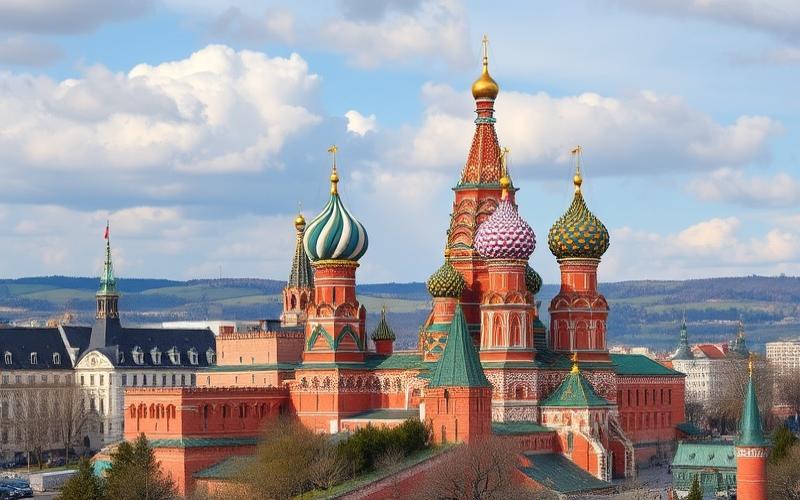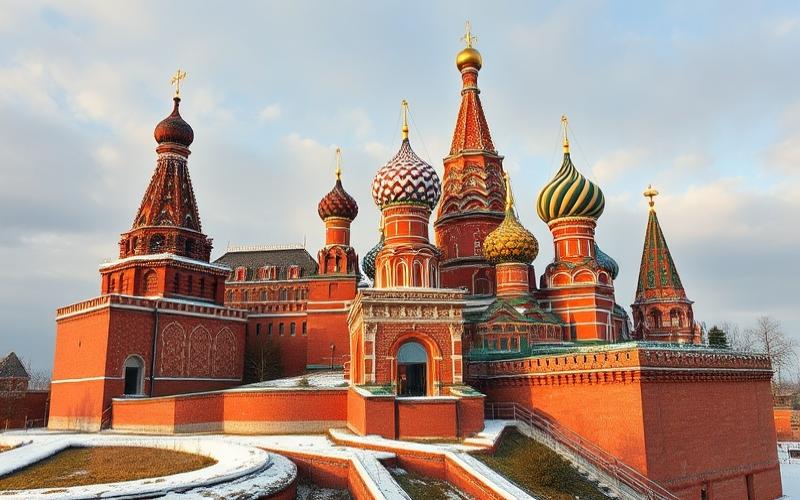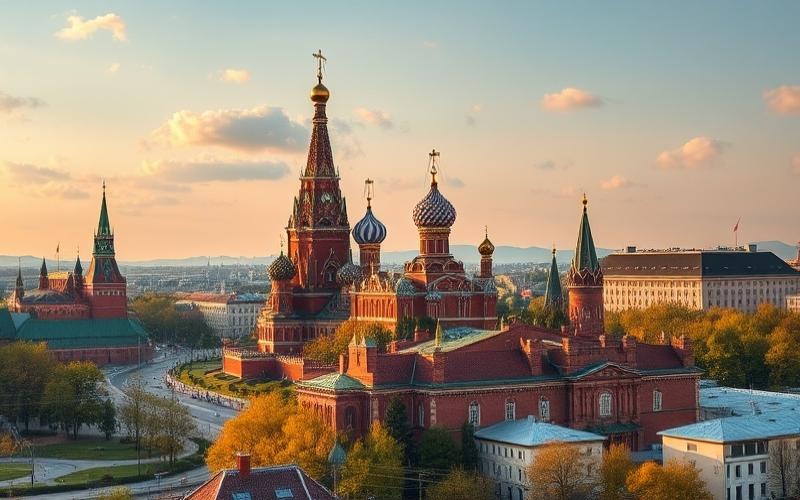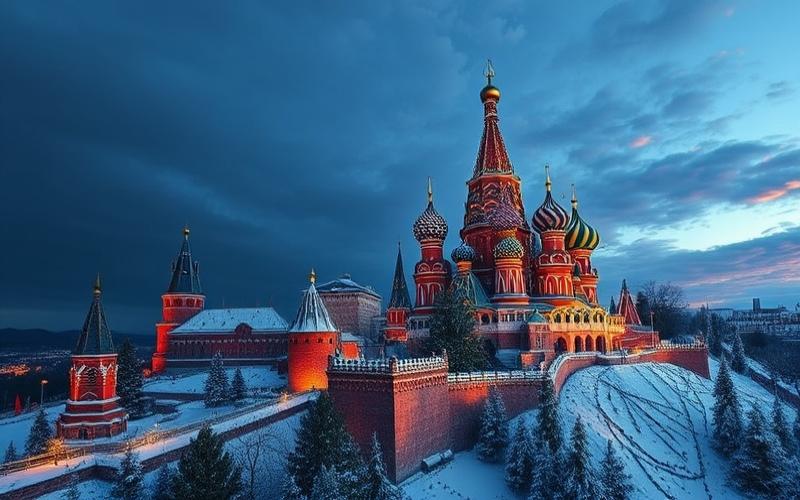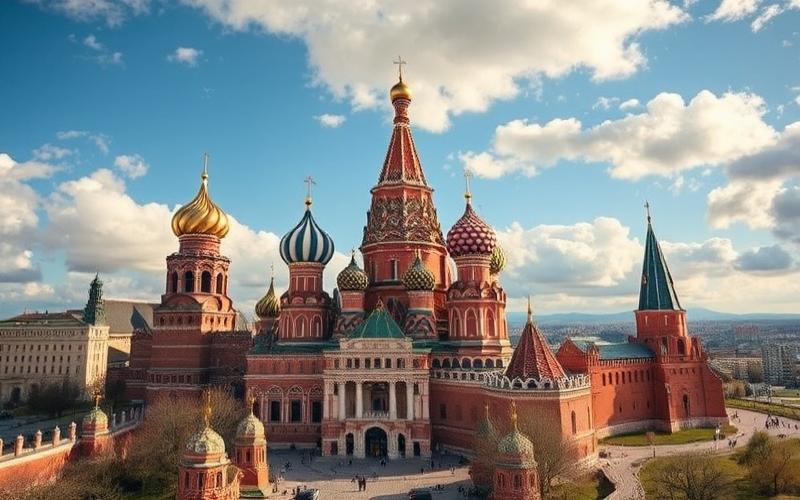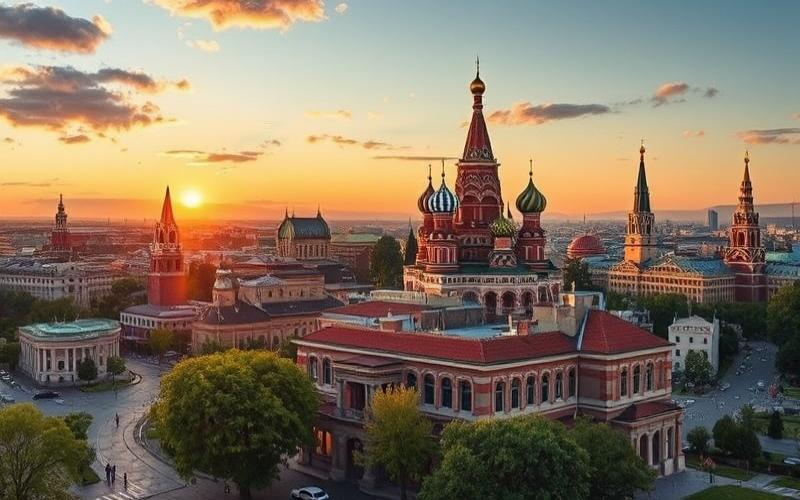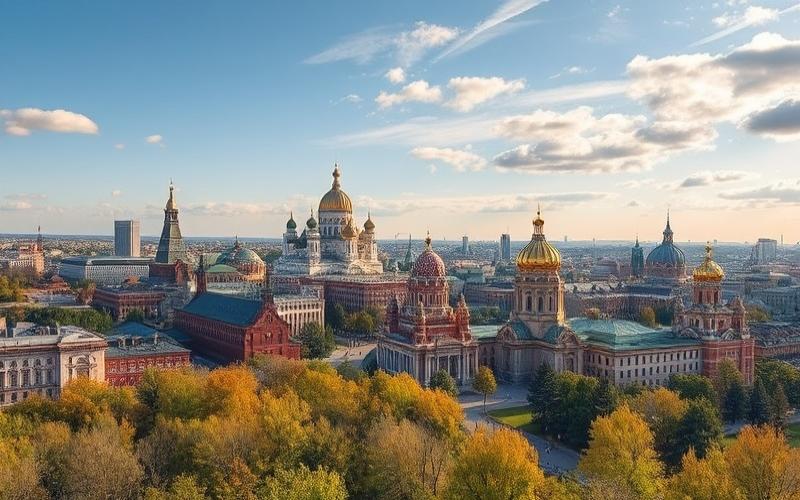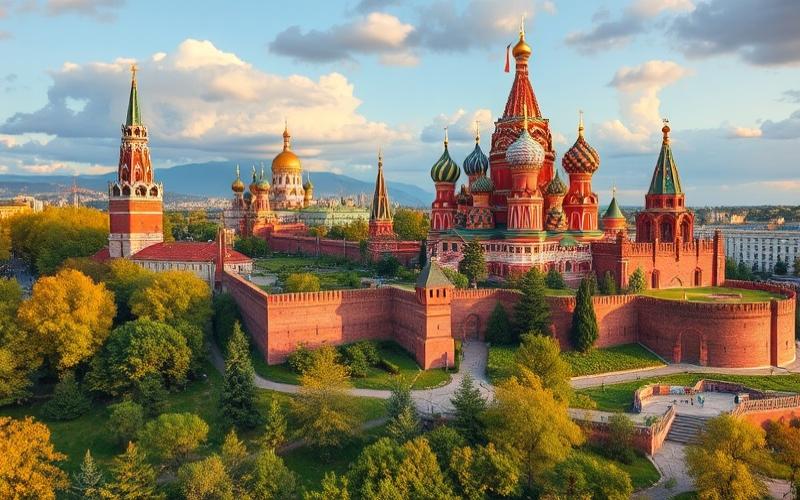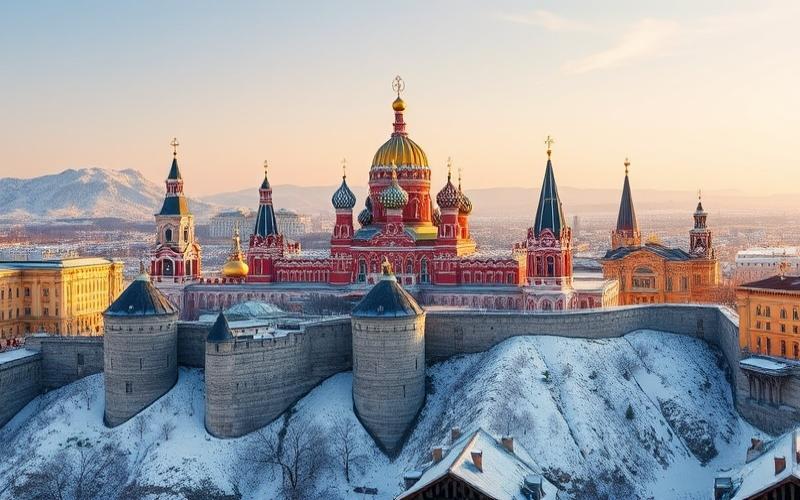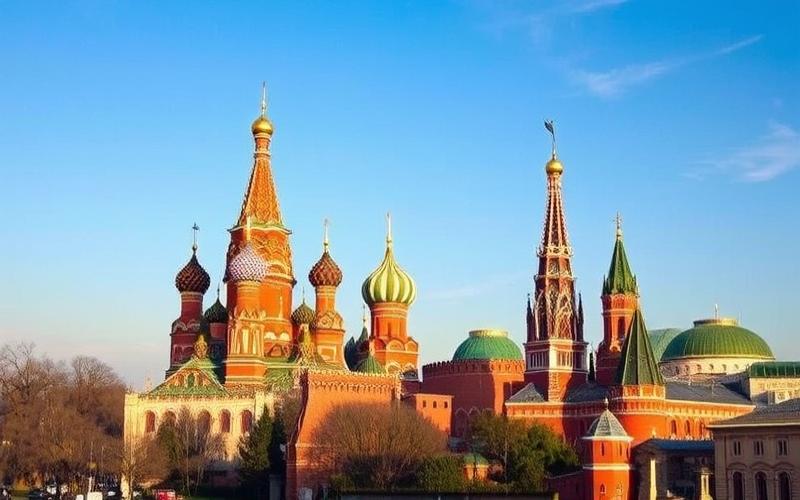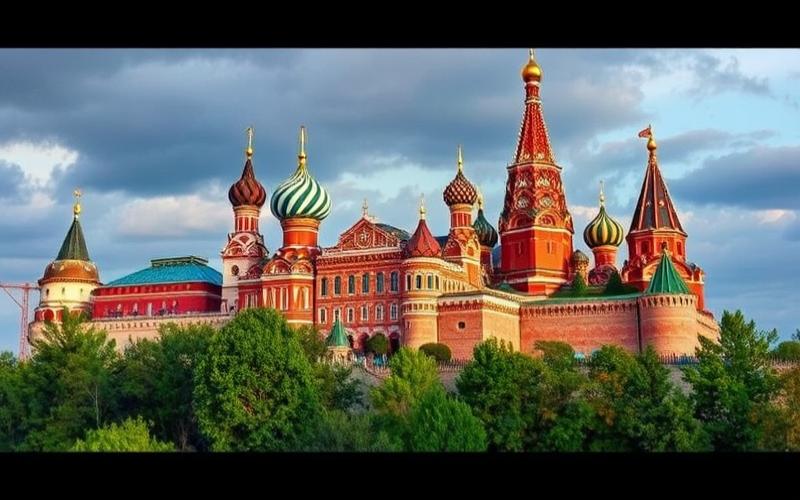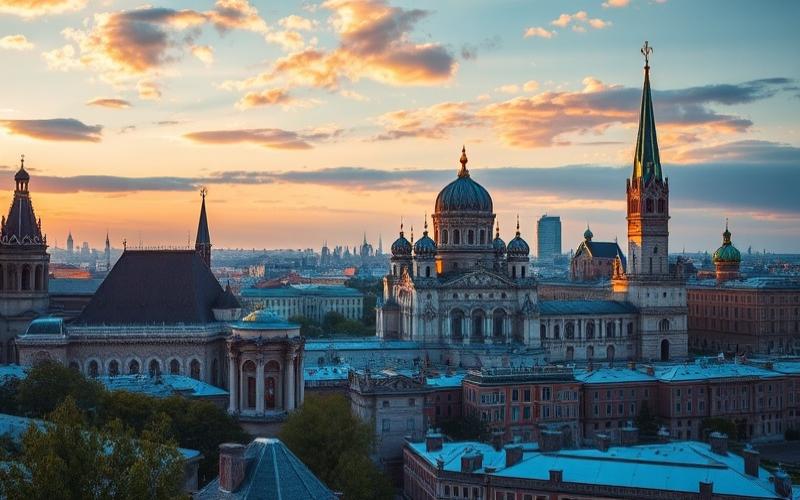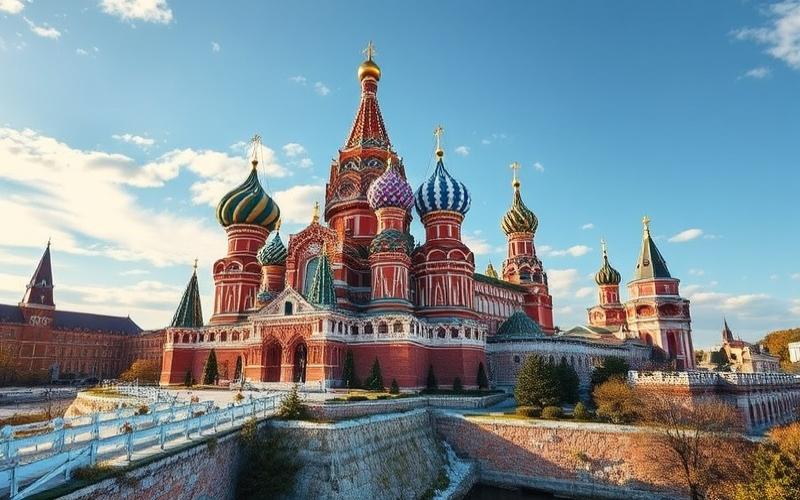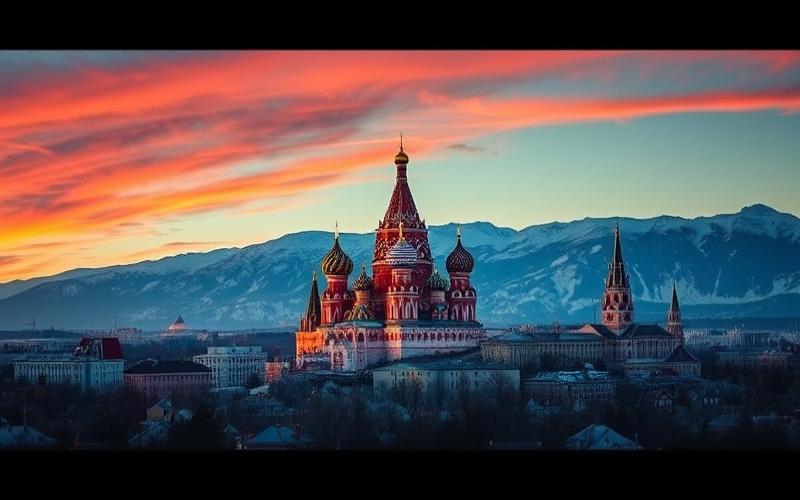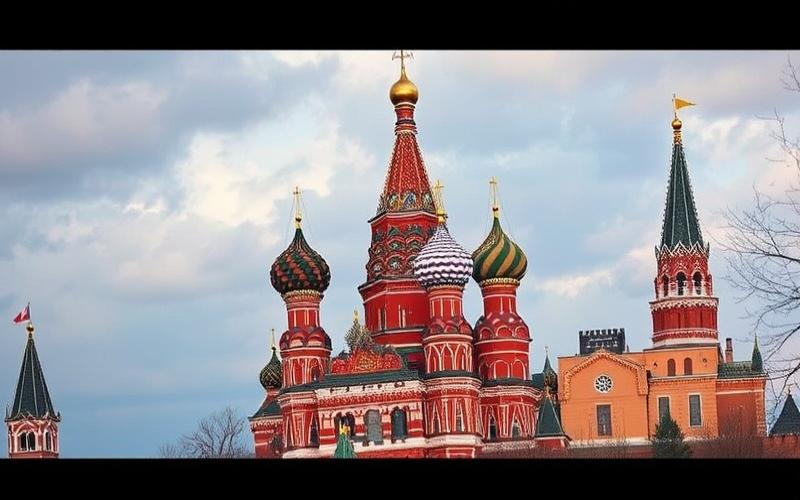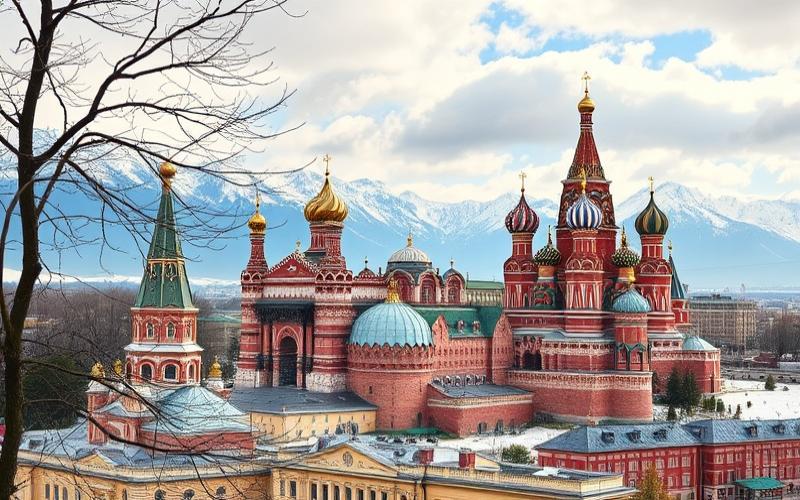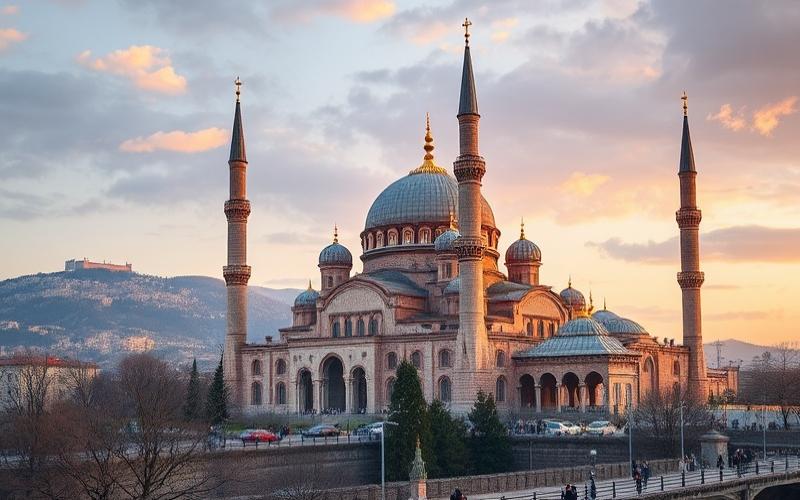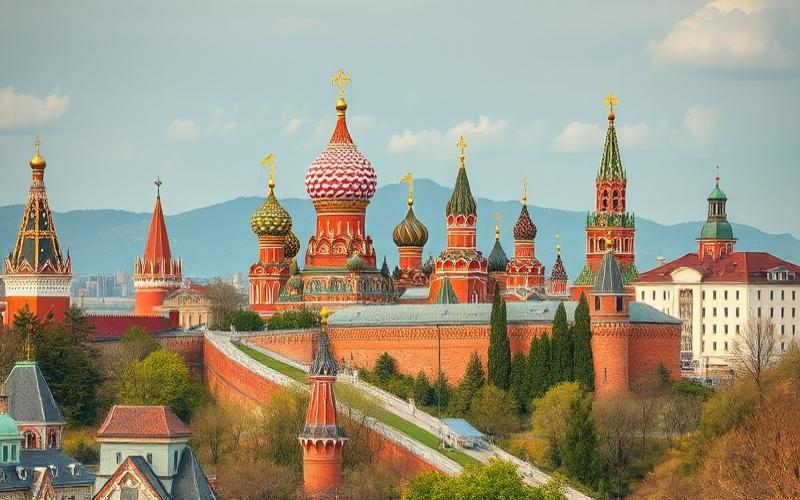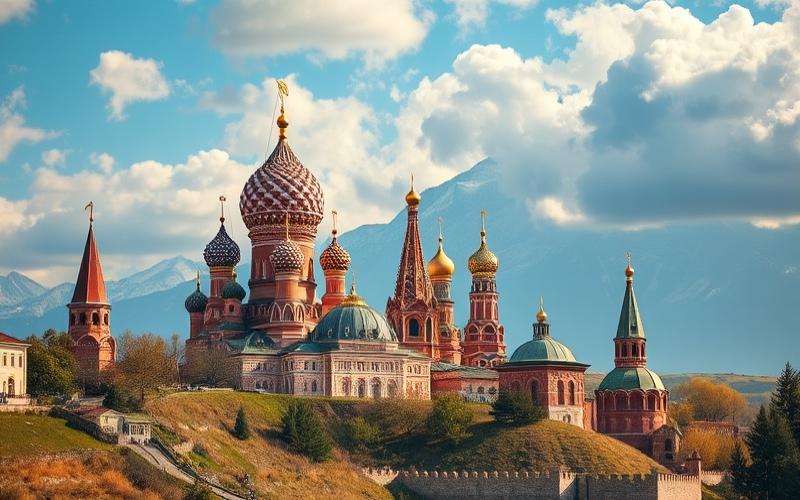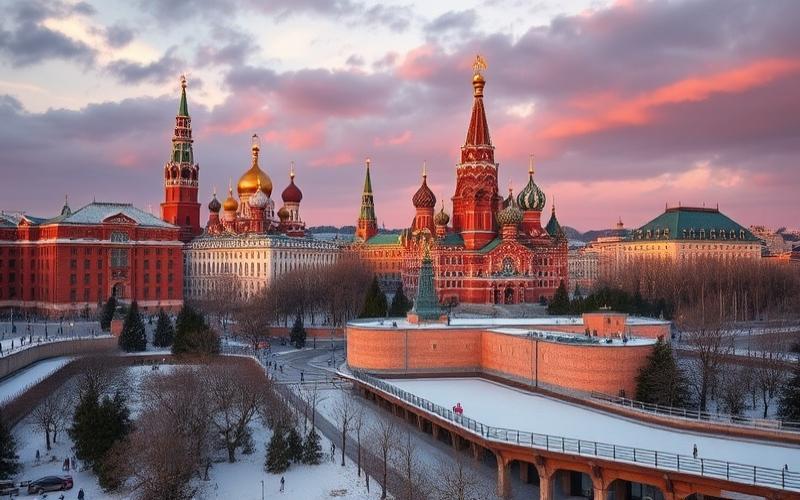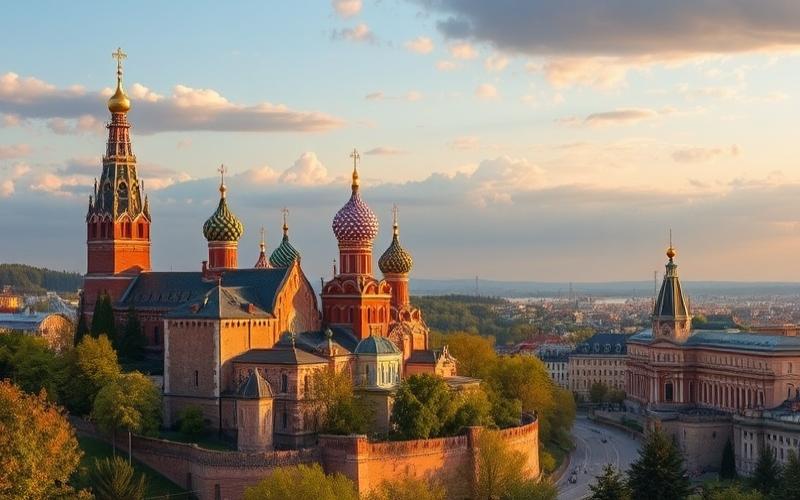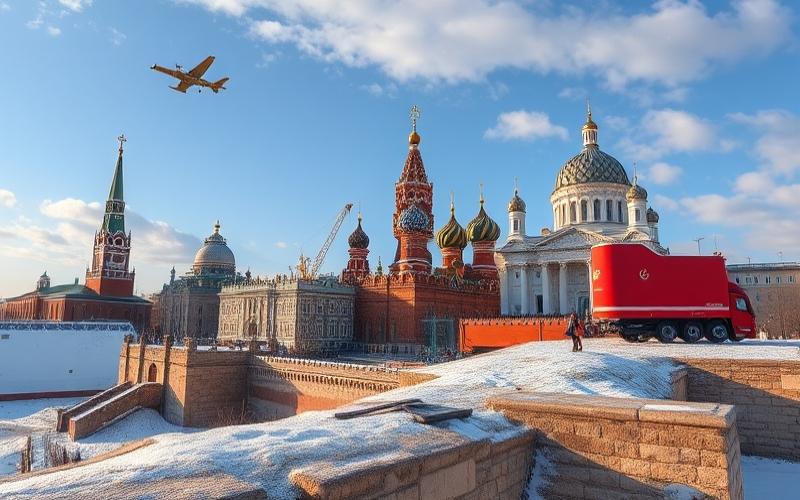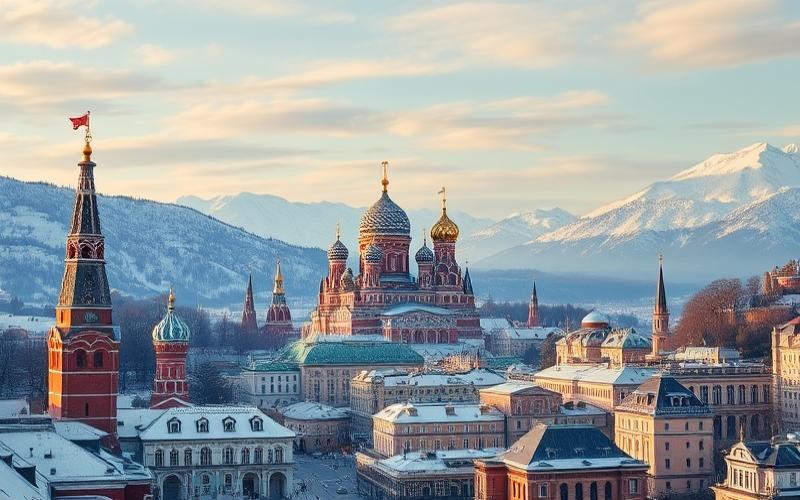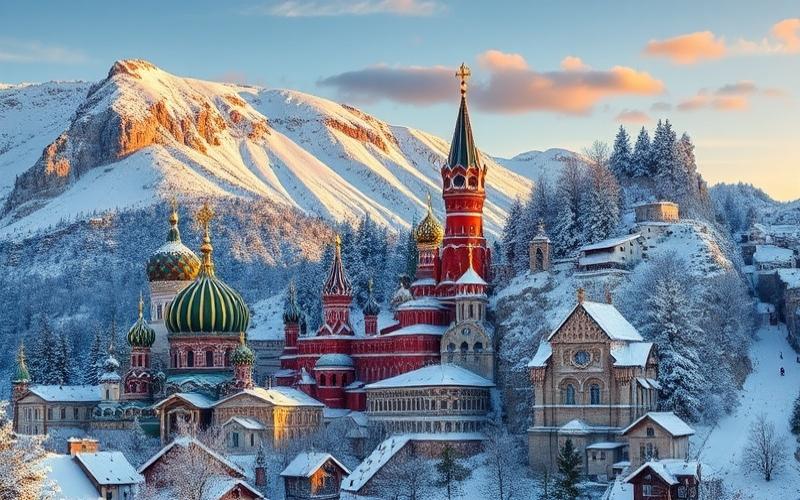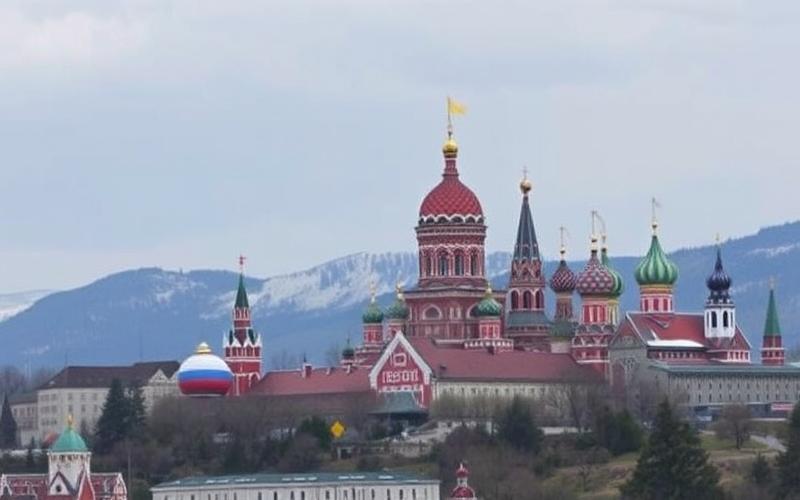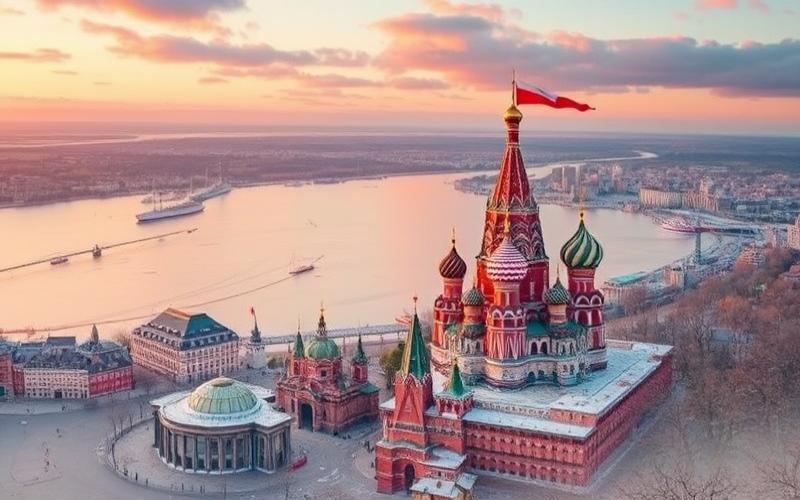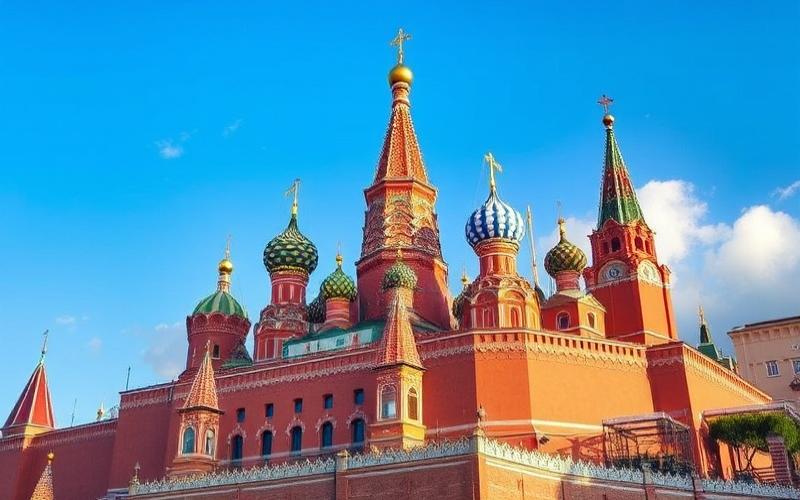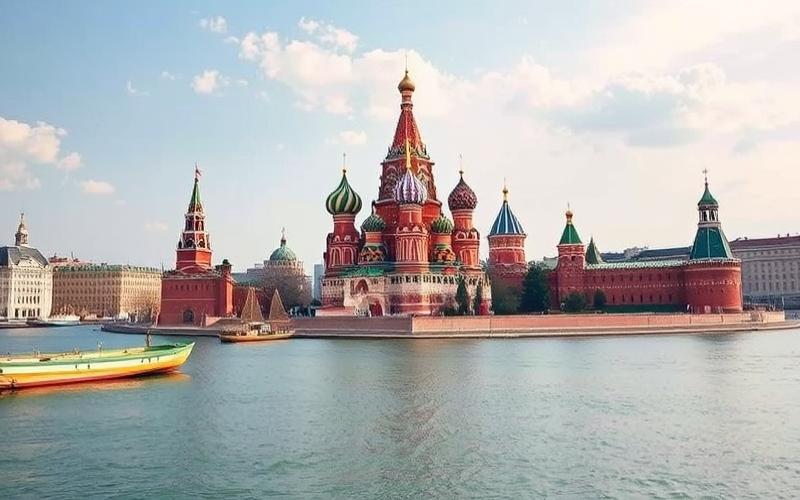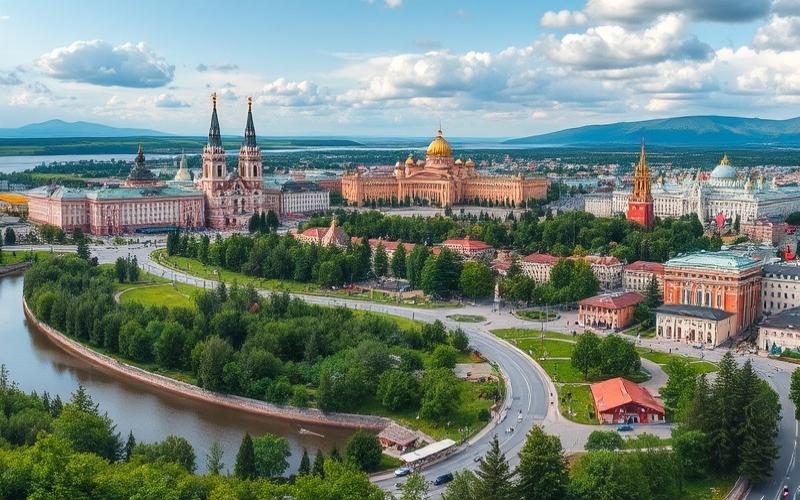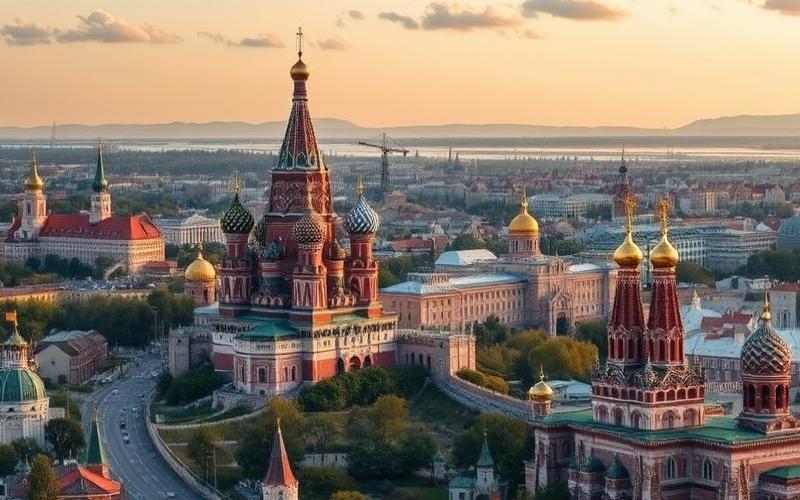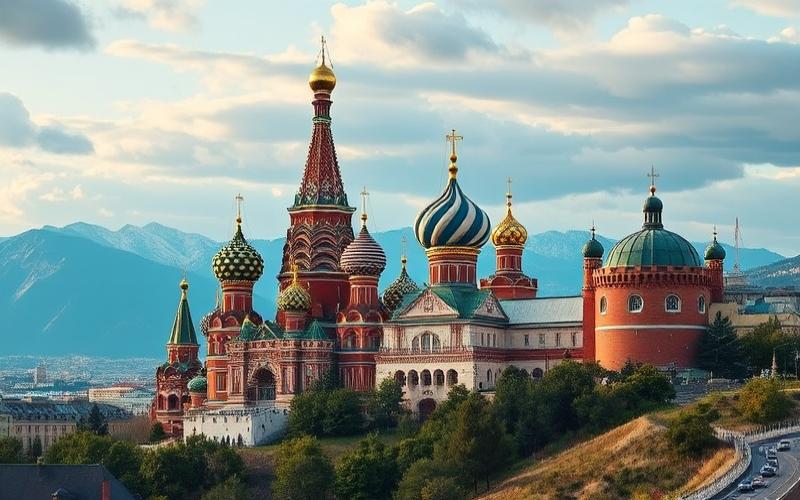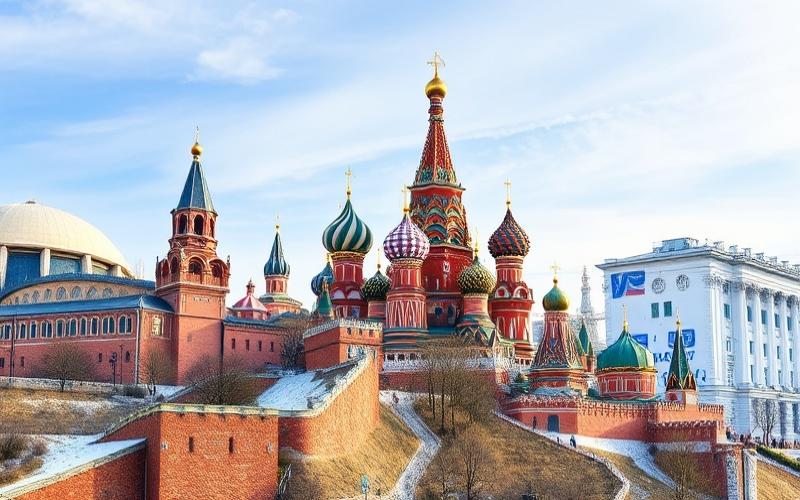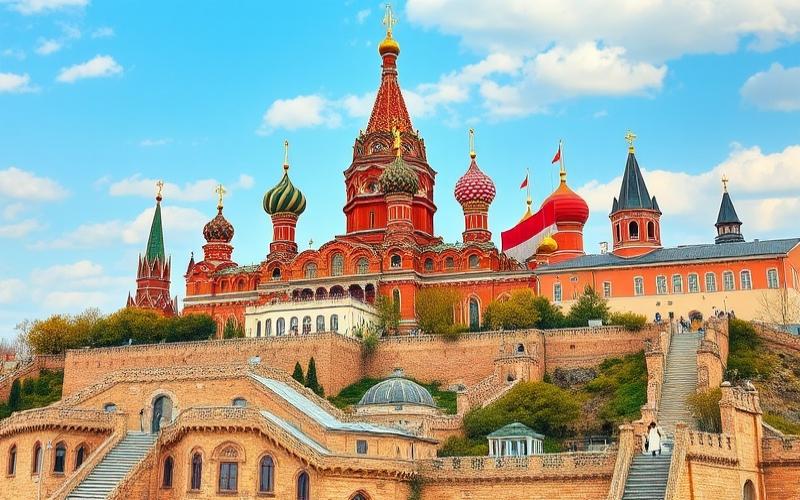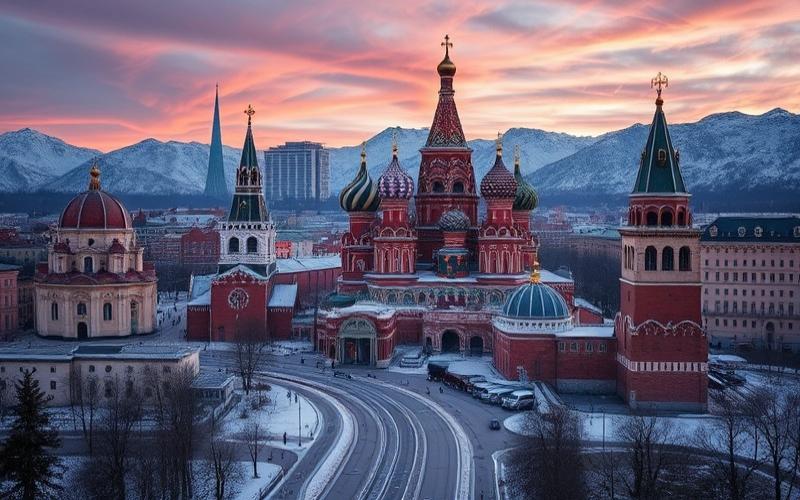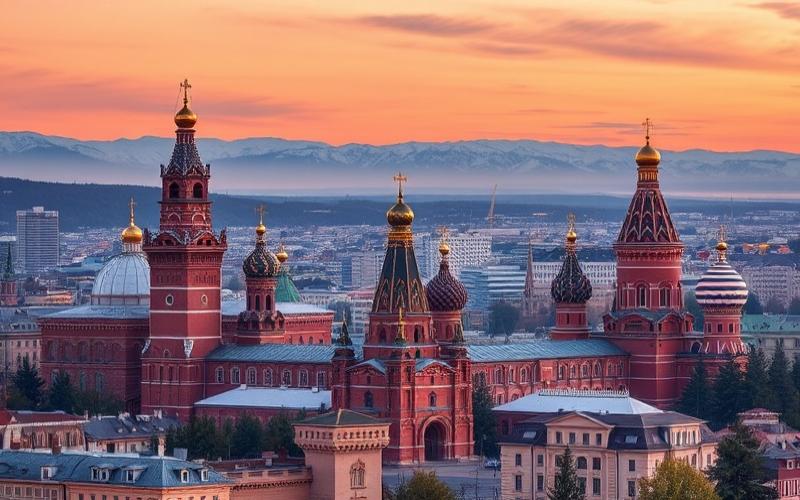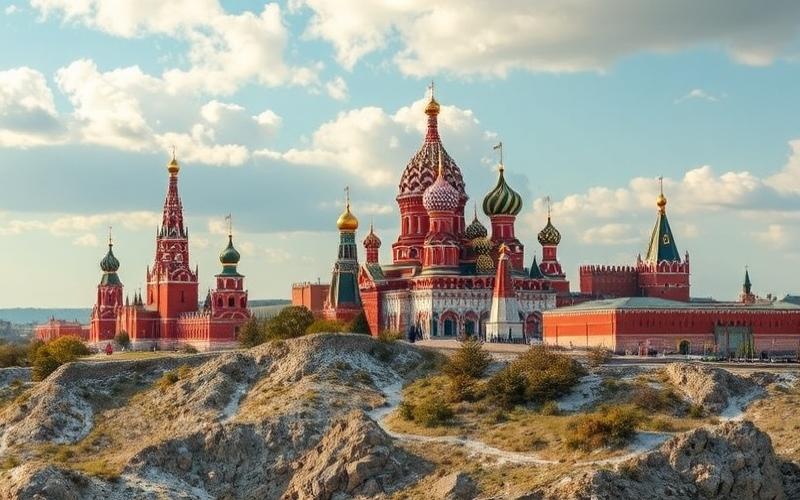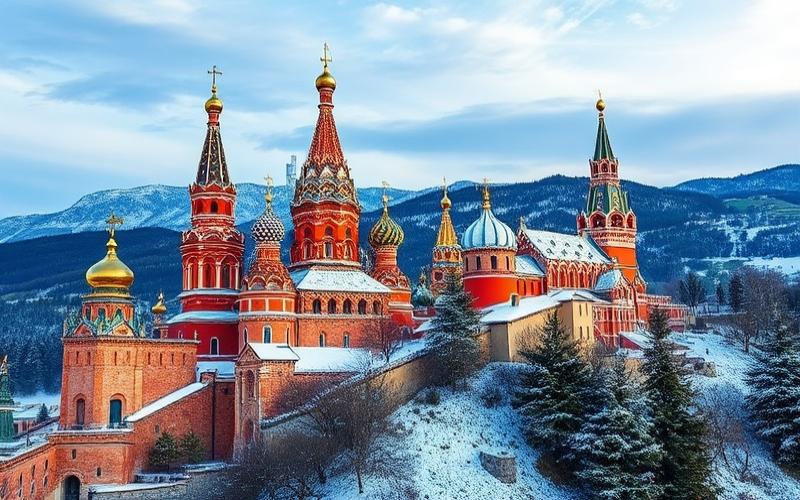
 Published on and written by Cyril Jarnias
Published on and written by Cyril Jarnias
In an ever-changing global context, the Russian job market presents a unique landscape of opportunities for expatriates seeking new professional adventures. Among expanding sectors such as energy, technology, and engineering, Russia offers a range of interesting and often lucrative careers.
However, navigating this vast market requires a good understanding of the country’s cultural and legal specifics, as well as a well-developed strategy to seize the most promising opportunities.
This article aims to decode the challenges and benefits of the Russian market, providing potential expatriates with practical advice to maximize their professional success.
How to Land a Job in Russia
Administrative Procedures for Working in Russia
- Work Visa: The Russian employer must obtain a work permit from the migration authorities. Required documents include a valid passport, an ID photo, medical certificates (HIV/AIDS, tuberculosis), an invitation letter, and a contract detailing the position. The process takes about 100 days and involves administrative fees.
- Highly Qualified Specialist (HQS) Permit: Accessible to highly qualified international profiles with a high minimum monthly salary; the procedure is expedited (about 14 days). This permit can last up to three years and allows for family visas.
- Local Registration: After arriving in Russia, it is mandatory to register with the local migration service within seven business days of settling in.
Promising Sectors for Expatriates
- Information Technology (IT)
- Engineering
- Energy and Natural Resources
- Finance & International Audit
- Higher Education / Foreign Languages
- Construction
These sectors particularly seek international or specialized skills that are hard to find in the local market.
Practical Job Search Tips
Best Tools and Resources
- Specialized Websites: HeadHunter.ru (hh.ru), SuperJob.ru, Rabota.ru
- International Agencies in Russia: Hays Russia, Kelly Services Russia
- Active use of LinkedIn to spot “expatriate” offers or directly contact local recruiters.
Professional Networking
Meeting the expatriate community through bilateral chambers of commerce or participating in Russian/international sector events often facilitates access to the hidden job market.
Mastery of Russian & Language Alternatives
Knowledge of Russian remains very important for the majority of positions. However:
| Required Level | Concerned Sectors | Alternatives/Companies |
|---|---|---|
| Fluent | Local Administration, Healthcare | – |
| Intermediate | IT, Engineering | Multinational companies based in Moscow/St. Petersburg sometimes open to English |
| Low/None | Foreign Language Teaching | Private Schools |
Learning Options
- Intensive university courses on-site
- Specialized mobile applications (Duolingo, Babbel)
- Private lessons with a native speaker
Some international companies recruit without strong language requirements if the position targets only foreign clients or relies on an English-speaking international team.
Cultural Differences During Interviews
- Strict punctuality expected for professional appointments.
- Formal dress code preferred even in creative sectors.
- Reserved attitude valued: avoid excessive familiarity from the first contact.
- Prepare a structured pitch focused on concrete results and measurable technical skills.
- Importance given to official translated/certified degrees.
Contract Negotiation & Key Legal Aspects
| Point | Recommendations/Precautions |
|---|---|
| Written Contract | Always request a bilingual written contract if possible |
| Trial Period Duration | Varies by sector; generally 1 to 3 months |
| Compensation | Clarify net/gross; negotiate additional benefits |
| Termination/End of Contract Clause | Verify specific Russian legal conditions |
Systematically prioritize review by a specialized lawyer before signing to avoid any ambiguity regarding visa/permits/social coverage/housing.
Optimizing your administrative and cultural preparation remains essential to maximize your chances in the Russian market while securing your professional situation!
Good to Know:
It is essential to obtain a work visa and register with local authorities, while targeting sectors like technology, energy, and engineering where international skills are sought. Mastering the Russian language is a considerable asset, but many international companies also hire English speakers, particularly through professional networks such as LinkedIn.
Expatriate Salaries in Russia: Concrete Examples
Average Expatriate Salary in Russia (2025):
The national average salary is about €613 per month. This figure masks strong disparities depending on the region, sector, and qualification level.
| City / Region | Average Monthly Salary (€) |
|---|---|
| Moscow | 1,150 |
| St. Petersburg | 800 |
| Medium-sized Cities / Rural Areas | 400–600 |
Salary Examples by Sector for Qualified Expatriates:
| Sector | Monthly Salary in Moscow (€) | Monthly Salary in St. Petersburg (€) | Medium-sized Cities (€) |
|---|---|---|---|
| Engineering | 1,500 – 3,000 | 1,200 – 2,200 | 800 – 1,500 |
| Finance | 2,000 – 4,000 | 1,500 – 2,800 | 1,000 – 1,800 |
| Information Technology (IT) | 2,000 – 4,500 | 1,600 – 3,000 | 1,200 – 2,000 |
| Education (International Schools) | 1,200 – 2,200 | 1,000 – 1,800 | 800 – 1,200 |
Expatriate Testimonials:
“In Moscow, my telecommunications engineering position allowed me to earn €2,800 per month with a housing bonus. In the regions, for the same position, the offer did not exceed €1,400.”
“I work as a French teacher in St. Petersburg. The base salary is €1,100, but the school covers my rent and health insurance.”
Variations by Experience and Qualification Level:
- A recent IT graduate often earns €1,500–2,000 in Moscow.
- A senior expert in finance or engineering can reach €4,000 or more, especially with rare or managerial skills.
Frequent Additional Benefits for Expatriates:
- Performance or expatriation bonuses (especially in large international groups)
- Housing allowance or employer-provided housing
- International health insurance
- Family allowances for children enrolled in international schools
- Partial coverage of transportation costs
Significant Regional Differences:
Salaries are 30 to 50% higher in Moscow than in St. Petersburg, and up to double compared to regional cities.
The cost of housing in Moscow (€700–1800/month for a downtown apartment) absorbs a significant portion of income, but it is often partially or fully compensated by the employer.
In the regions, the cost of living and rent is much lower, but salaries follow the same trend.
Impacts of Economic and Political Fluctuations:
- Ruble fluctuations strongly influence real purchasing power in euros or dollars.
- International sanctions and internal policies can lead to a decrease in opportunities for expatriates, salary freezes, or even staff reductions.
- Contracts in foreign currencies (USD/EUR) are sought to protect against ruble depreciation.
Summary of Key Elements to Consider:
- Base salary often lower than Western European standards, but compensated by additional benefits.
- Regional disparities very marked, both in salaries and cost of living.
- Experience and qualification play a crucial role in negotiating the salary package.
- Economic fluctuations and geopolitical risks must be taken into account in any expatriate contract negotiation.
To Remember:
The overall package (salary + benefits) should always be evaluated considering the local cost of living, currency fluctuations, and job stability.
Good to Know:
Expatriate salaries in engineering and finance in Moscow can exceed €90,000 per year, while those in teaching in smaller cities are around €30,000, but these amounts vary based on experience and bonuses often include benefits such as housing allowances. Recent economic fluctuations have led to salary adjustments, and some expatriates report disparities in treatment between Moscow and St. Petersburg compared to peripheral regions.
Top Recruitment Agencies in Russia
| Agency | Specialties | Sectors of Excellence | Reputation & Track Record | Services Offered |
|---|---|---|---|---|
| Atsal HR-Solutions | HR Consulting, Custom Recruitment | Executives, Engineering, Management | Good reputation among international companies for successful placements, including expatriates | Administrative Support, HR Advice, Interview Preparation, Cultural Integration Assistance |
| Skills Provision | International Recruitment, Custom Solutions | Industry, IT, Production | Excellent visibility in the Russian market, regular placements of expatriates for large industrial groups | Visa Procedure Assistance, Interview Preparation, Integration Follow-up, Market Adaptation Advice |
| Globalization Partners | Company Setup, Mobility Management | Multi-sector, Subsidiary Establishment | Collaboration with numerous multinationals, regular placements of foreign profiles, strong local expertise | HR Outsourcing, Full Administrative Management, Expatriate Onboarding, Cross-cultural Training |
Areas Where Agencies Excel:
- IT & Information Technology (high demand for foreign experts)
- Engineering and Energy (needs for industrial projects, construction)
- Services and Management (search for international profiles for management and strategy)
- Metallurgy and Production (sectors open to expatriate executives)
Reputation and International Partnerships:
These agencies have built a solid reputation through their collaboration with international companies and their ability to effectively integrate expatriates into key positions.
Expatriate testimonials highlight professionalism, speed of procedures, and continuous integration support.
Services Typically Offered:
- Administrative Advice (visas, work permits, housing)
- Interview Preparation (simulation, personalized feedback, cross-cultural advice)
- Cultural Integration Assistance (training, daily life support)
- Post-placement Follow-up (integration review, support in case of difficulty)
Expatriate Testimonials:
“Thanks to Skills Provision, I found an engineering position in Moscow. Their team assisted me with all procedures, even after my arrival. I highly recommend!”
“Atsal HR-Solutions prepared me for interviews and connected me with an international employer upon my arrival. Their knowledge of the Russian market is a real asset.”
Tips for Choosing a Recruitment Agency in Russia:
- Check the agency’s sector specialization according to your profile.
- Analyze testimonials and reputation on expatriate forums or with international companies.
- Evaluate the range of services offered: a good agency provides comprehensive support (administrative, preparation, integration).
- Prefer agencies with international partnerships and proven experience in placing expatriates.
- Request an initial interview to assess the seriousness and professionalism of the team.
To maximize your chances, choose an agency that understands cross-cultural issues, offers personalized support, and has a strong network in Russia and internationally.
Good to Know:
Antal Russia and Kelly Services are among the leading agencies specializing in placing expatriates in Russia, offering services such as interview preparation and cultural integration assistance, while enjoying a solid reputation for their placement success.
Booming Sectors for Expatriates
High-Growth Economic Sectors and Opportunities for Expatriates in Russia
Booming sectors offering significant opportunities for expatriates in Russia include:
- Energy (oil, gas, coal)
- Information Technology and Digital Services
- Finance and Banking
- Manufacturing and Engineering (metallurgy, machinery, aerospace)
- Healthcare and Education (emerging sectors)
Key Industries and Attractiveness for International Talent
- Energy: Russia remains one of the world’s leading producers of oil, natural gas, and coal. The sector requires international specialists for complex project management, petroleum engineering, safety, and production optimization.
- Information Technology (IT): In full modernization, Russia is focusing on biotechnology, cybersecurity, artificial intelligence, and digitalization of services. Companies seek experienced profiles capable of driving innovation and transferring skills.
- Finance: Moscow, a regional financial center, hosts international banks and fintechs looking for experts in risk management, compliance, financial analysis, and banking product development.
- Engineering and Manufacturing: Metallurgy, aerospace, and automotive sectors recruit engineers, project managers, and industrial automation specialists, often from abroad to support modernization efforts.
Examples of Companies Recruiting Expatriates and Types of Positions
| Sector | Companies (Examples) | Types of Positions for Expatriates |
|---|---|---|
| Energy | Gazprom, Rosneft, Lukoil, Schlumberger | Drilling Engineer, Project Manager, HSE Expert |
| IT | Yandex, Kaspersky, Luxoft, EPAM | Senior Developer, IT Architect, Data Scientist |
| Finance | Sberbank, VTB, Raiffeisen Bank, Citi | Financial Analyst, Portfolio Manager |
| Engineering | Sukhoi, Uralvagonzavod, Severstal | Industrial Engineer, Plant Manager |
| Healthcare/Education | RUSNANO, Skolkovo, Medsi | Researcher, Health Expert, International Trainer |
Skills and Qualifications Sought
- Proficiency in English, and Russian for some technical positions
- Engineering, management degrees, or internationally recognized IT certifications
- Experience in managing international projects or multicultural teams
- Skills in innovation, automation, cybersecurity, or data science
- Ability to adapt to complex regulatory and cultural environments
Working Conditions and Benefits for Expatriates
- Competitive salaries, often higher than the local average to attract rare profiles
- Expatriation packages including housing, health insurance, school fee coverage
- Career prospects in dynamic and transforming environments
- Development opportunities through training programs and internal mobility
Challenges for Expatriates and Integration Strategies
- Language barrier and cultural differences in the professional world
- Administrative complexity (visa, work permit, degree recognition)
- Economic volatility and geopolitical uncertainty that can impact contracts
Success Strategies:
- Learn basic Russian to facilitate integration
- Develop a local network (expatriate communities, chambers of commerce)
- Train on the regulatory environment and Russian negotiation practices
- Adapt management to the local corporate culture
Visual Summary of Promising Sectors
| Sector | Key Opportunities | Level of Openness to Expatriates |
|---|---|---|
| Energy | Engineering, Project Management | High |
| IT | Development, Cybersecurity, AI | High |
| Finance | Analysis, Compliance, Management | Medium to High |
| Engineering/Industry | Modernization, Automation | Medium to High |
| Healthcare/Education | Research, Teaching, Innovation | Medium |
Good to Know:
In Russia, the energy, information technology, finance, and engineering sectors offer attractive positions for expatriates, with companies like Gazprom and Yandex leading the list; key positions require advanced technical skills and good language knowledge. Expatriates can expect competitive salaries and career opportunities, although professional integration can be facilitated by proactive cultural adaptation.
Disclaimer: The information provided on this website is for informational purposes only and does not constitute financial, legal, or professional advice. We encourage you to consult qualified experts before making any investment, real estate, or expatriation decisions. Although we strive to maintain up-to-date and accurate information, we do not guarantee the completeness, accuracy, or timeliness of the proposed content. As investment and expatriation involve risks, we disclaim any liability for potential losses or damages arising from the use of this site. Your use of this site confirms your acceptance of these terms and your understanding of the associated risks.

